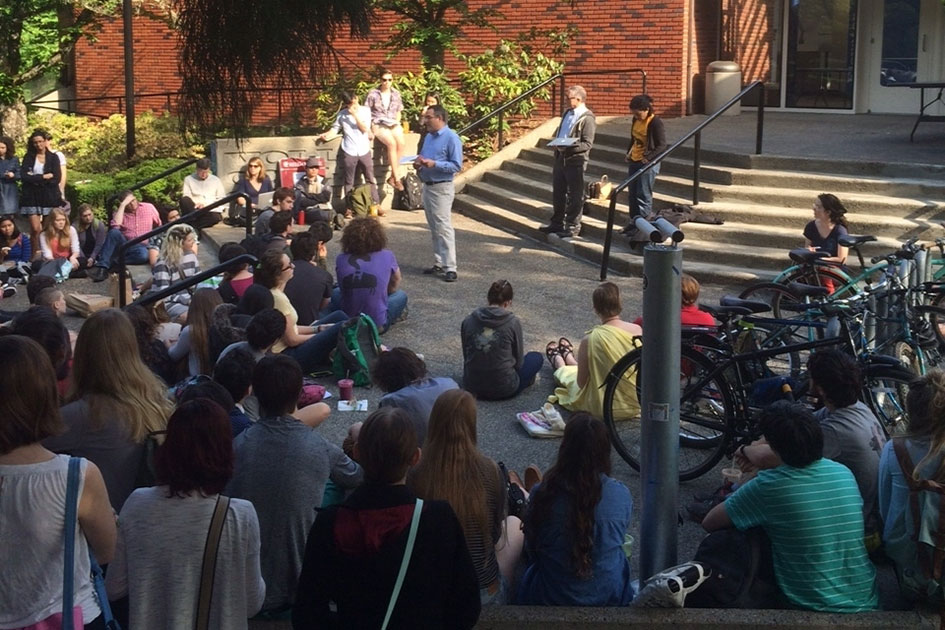Apuleius Prevails Despite Student Protest
Student activists chalked slogans on the blackboard and engaged in a silent protest at the final Hum 110 lecture of the semester today to push for a more inclusive curriculum.
The protest posed a thorny dilemma for the lecturing professors. If you erase the blackboard, people might accuse you of censorship. But if you don't erase it, you appear—at least tacitly—to endorse the protestors' position. So Prof. Sonia Sabnis [classics], Prof. Steve Wasserstrom [religion], and Prof. Michael Faletra [English] hit on a creative solution. Following ancient tradition, they decided to hold the lecture outside, on the steps of Vollum, where they discussed the reading of the day: Apuleius and the Golden Ass.
It is somewhat paradoxical that the protest took place at a lecture on the Golden Ass, one of the most intriguing texts in the Hum 110 syllabus. Written by a North African intellectual, the story is a piercing critique of the Roman Empire in general and of slavery in particular.
Hum 110 has undergone considerable evolution in recent years and includes classic texts such as the Epic of Gilgamesh, the Tale of Sinuhe, and the Code of Hammurabi, in addition to Greek and Roman authors. However, it remains focused on Greece and the ancient Mediterranean—a source of vexation for some student activists.
“We believe it is racist that a mandatory class excludes Asia, Polynesia, most of Africa, and the pre-colonial Americas,” reads a statement posted on the internet. “To truly understand the foundations of our world, we must expand our critical thought beyond the dominant culture.”
Reed offers scores of courses on global subjects, from the foundations of Chinese culture, to the anthropology of Islam, power in sub-Saharan Africa, the literature of Argentina, languages of south Asia, the semantics of love in Sufism, ethnicity and gender in China and Tibet, Balinese dance, and so on. However, these courses are not mandatory, whereas Hum 110 is required of all freshman students.
Several dozen students and some professors remained inside the lecture hall to discuss ways to broaden Hum 110 beyond the ancient Mediterranean. The majority, however, joined professors Faletra, Sabnis, and Wasserstrom outside to engage Apuleius in classic Reed tradition.
Tags: Students
